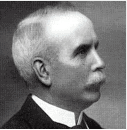The Devils Manual for IT Managers
Part 5: Looking Busy

This is the fifth in my series of hints for aspiring IT managers. Here, we tell you how to look busy and efficient,
Note the previous four blogs in the series
- Part 1: How to prevent Initiatives
- Part 2: Irregular verbs for IT managers
- Part 3: Phrases with which to discourage ideas.
- Part 4: Writing a ‘one-pager’ strategy document.
The most important thing for an IT manager is to look busy. In fact, it is a technique that dominates the management of the public sector, where whole office blocks are filled with people earnestly engaged in nothing more than sending emails to each other full of positioning papers, strategy documents, directives and plans. Looking busy is one of the primary skills that is required in a manager, and one looks in vain for sage advice on this in the manuals on management that are sold in airports. to fill a crying need, I offer the following tips.
- Be creative in stagggering your hours: I once knew a manager who arrived early at the office and always was the last to leave. It impressed everyone, and nobody seemed to realise that he, legitimately, took four hours off in the middle of the day.
- Spend your time at a PC. The PC is a wonderful invention because it is almost impossible to detect whether the user is doing productive work or not. An entire office can be seen bent over terminals engaged in work of mysterious complexity, when the are, in fact, doing nothing more than updating their facebook profile or organising their social life.
- Project-management software is essential. This is because just a small amount of data will produce reams of print-outs with esoteric graphs, calculations and reports. When ever anybody queries the status of one of your projects, just hand them the folder with all the printouts. The more data you put into project-management software, the more wildly impressive it looks.
- Attend lots of meetings. It is important to note that if you call lots of meetings with other people in your own company, they eventually get bored and don’t turn up. Suppliers, and potential suppliers, are different: they always turn up, especially if you are buying from them. Even if you don’t, you can string them along for a long while, and then you can just choose a different set.
- Engage in ‘crisis management’, pursue just the most visible’ parts of the job. It always helps to drop into conversation a mention of the feats of management you regularly accomplish
- Make sure you get lots of SMS, phone and mobile calls (you will achieve this by putting ads in the local papers).
- Make lots of visits to other offices within your organisation. There’s no need to do anything when you’re there, but it looks good, and is useful for dropping in the conversation subsequently, thereby paying a double dividend. Once everyone is aware of your peripatetic habits, nobody will even realise when occasional visits are to the golf course.
- Keep a box full of files which you strew all over your desk in neat piles when you get in. Before you go, just stack them away again, thereby getting a reputation for efficiency as well. A successful modification of this technique is to dump the files into your in-tray, thereby impressing all with your workload as well.
- Revise all the documents that your subordinates submit to you for approval. You will enjoy this too, since there is no passion like the passion to revise someone else’s document.
- Spend lots of time organizing your time. That way, you look busy and efficient, even though you will not have the time left to do the things you have organized yourself to do.
- When challenged as to why you have not done something you chuckle confidently, say ‘that would have been too simple, what we are doing is studying the underlying processes, and understanding the fundamental requirements of the users’, and lean back in your chair with a smug smile.
- Never miss a chance to (loudly) complain how many mail items arrive whilst you are away from your desk (this is a major indicator of your importance) . It pays to turn the sound up on your PC so others can hear the emails arrive.
- Engage in a vigorous Email correspondence with a large number of other managers, making sure you rush round telling everybody about the huge number of unread Emails in your mailbox. Achieve this by putting a question at the end of every email you send out.
- In meetings, be prepared with a number of Powerpoint presentations. The quality is immaterial as these are devised to reduce your audience to a state of induced catatonia. Always aim to say as much as possible. if there is a white board, be sure to get control of the felt-tips.





Load comments